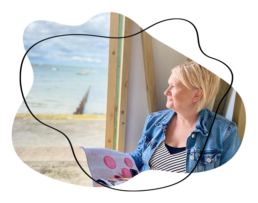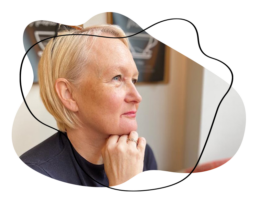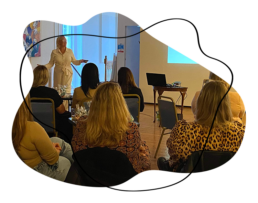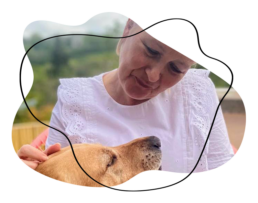Dear Amanda Spielman
Dear Amanda Spielman,
In response to your Woman’s Hour interview on 23.11.23.
Over the last two weeks some key things have happened in education in England. On the 15th November, Education Support published their annual Teacher Wellbeing Index, followed two days later by the Beyond Ofsted Inquiry into the Future of School Inspection. I have read both of these reports in full and these research-based documents show a damning picture of the wellbeing of school staff in all sectors and particularly around the current inspection process. Also, the education sector raised from their own pockets a staggering £70,000+ for Ruth Perry’s family’s legal fees and the inquest is currently underway – my thoughts are with Ruth’s family and friends.
So imagine, the collective shock of school staff to hear your opinions of OFSTED and school leaders on Women’s Hour. I myself was unaware that it was recorded in a parallel universe to the one the rest of us are working in. I am no longer in headship and if you have read my previous blog you will know why. This is not the time to discuss my story again, but it is time to speak up for the profession, and to have the right to an opinion that is not dismissed as anxiety that has been ‘spun around the system’.
Some of the key findings from the Teacher Wellbeing Index 2023 are as follows:
- 78% of school staff are stressed - this rises to 82% for teachers and 89% of senior leaders.
- 39% of school staff have experienced a mental health issue in the past academic year – 41% teachers and 37% senior leaders.
- 35% say these were symptoms of burnout.
- Staff wellbeing score is 43.65 using the Warwick Mental Wellbeing Scale (WEMWBS) – lower than the national population scores and the lowest recorded since 2019.
- 73% of staff think inspections are unfit for purpose.
- 73% of staff say inspections do not improve learner achievement.
- 71% of staff say inspections negatively impact their mental health and wellbeing.
- 64% of staff feel inspections do not deliver reliable judgements.
I am not sure these numbers could be any clearer and in my new role as a Leadership Coach, I am seeing the same picture over and over again.
Yet Ms. Spielman you talked on Woman’s Hour about how in your seven-year tenure there is an improving picture in the quality of OFSTED, and that you would not change any of your decisions. The Teacher Wellbeing Index reports a picture in schools that has gotten worse over five years, yet you maintain things are improving. You also said that OFSTED has very wide support in the system and that was shown in a very serious study that was undertaken. Does that mean that the two reports that I am referring to are not serious? I am confused.
Emma Barnett (what a woman!) asked you at the beginning of your interview how you would judge yourself as the outgoing Chief Inspector and unsurprisingly you would not give yourself a one-word judgement and made the claim that OFSTED do not judge individuals. As a former head teacher and someone who has experienced seven inspections over 25 years, I beg to differ. Let me quote from one of my own experiences:
The Head Teacher has successfully developed a school community based on caring and inclusive values.
In a one-form entry school it is not rocket science to work out exactly which individuals the inspector is referring to, whether that be in a negative or positive manner. If the maths leader is talked about or the SENCO for example, all you need to do is cross reference these on the school website. Individual members of staff are judged and feel those judgments deeply.
However, some of the more disturbing comments you made were around anxiety that is created within the system and not by OFSTED (your words). You described the tragedy of Ruth Perry as being used by people (you do not directly say school leaders) as a pivot to express the views that the school sector just doesn’t want to be accountable and that as a body we are concerned about having disappointing outcomes to inspections. I feel the need to explain some of these issues to you and the teams that work under you.
Twice in my career as a head teacher I have been diagnosed with stress and anxiety and both times they were linked to situations I was dealing with within my job. There is an enormous difference between feeling worried and concerned about things that you might have heard at meetings or through your networks and suffering with a medical diagnosis of anxiety. A medical diagnosis of anxiety is an uncontrollable fear/worry that impacts on your daily life and will often need both medical and therapeutic intervention. I think what I am trying to say is that the stress and burnout that school staff feel is deeply rooted in working in a profession where the odds of success are so heavily stacked against you that on a daily basis you feel that you are wading through treacle. OFSTED is the core of this system that no longer serves its learners or the staff that are there to improve their outcomes.
Why do you suppose as a profession we are so anxious, stressed and depressed? Why do we let it consume our everyday life? I wonder Ms. Spielman do we just need to be more resilient? I mean you said yourself you do not want schools to do anything different for the inspection and you expect to see a ‘normal’ couple of days. Well, I think I know the answer. We feel the pressure so deeply because we care! We feel it because we are accountable. We know we are and more importantly we know we need to be. We are accountable to the children in our schools, to their families and the wider community. We are accountable to the staff we employ to ensure they reach high standards but keep well mentally and physically. We are accountable to our governing body, to our local authorities, to our MATs, to the Health and Safety Executive and to the Local Safeguarding Board and police and health services. Every day we are accountable for the life chances of the young people and staff in our care. We knew this when we took on the role and we understand this. There is no head teacher in England who as you say feels ‘uncomfortable around being held accountable’ it comes with the territory.
What makes us ‘uncomfortable’ is the way in which your framework holds us to account and the inconsistency with which it is done. What kind of a judgement can be made in less than 48 hours in the building? How do your inspectors give a reasonable and honest account of what goes on in all curriculum areas, behaviour, safeguarding, leadership including governance, parental relationships with school, support for SEND children, the extra-curricular activities, the staff training programme, the support for early career teachers… do I need to go on?
Lesson observations are often as short as ten minutes, but inspectors write seemingly factual statements on the back of these. One of my school’s inspection reports commented on high attaining children not being challenged sufficiently in maths – this was because a child (who was not high attaining) said that his work was too easy. If the inspector had looked in the child’s book, he would have seen a child who constantly needed adult help and retrieval practice to secure new concepts! Of course, we are concerned about less than positive outcomes with our inspections because single-word judgments are not enough and on the back of those judgements you lose families and staff to other schools, and outcomes fall even further.
The Beyond Ofsted Inquiry Report recommends some really workable solutions that would still hold schools very much to account – but will anyone at the DFE actually take it seriously? The report is based on research and evidence and not the government rhetoric that sits behind OFSTED. Let me explain just a few of them – I would recommend that you read it though Ms. Spielman as I believe it tells the real story behind our broken education system. But what do I know?
At the very least we need to abolish the single-word judgments and create more regular opportunities for safeguarding checks (although lots of LA’s undertake annual audits already).
However, what the report really advocates is an accountability system that aids school improvement, not one that makes inaccurate judgements and walks away without looking back. Schools need long-term relationships with a trusted expert who can judge and support, someone who knows the context of the school and the staff profile. There needs to be real-time transparency to reporting to stakeholders and regular surveys to check progress. The professionals who work in collaboration with the schools need values that align with the school. Some critics would say that schools already have this with their SIPS or Challenge Partners (MATS) and yes they do – but these are ultimately still working to the OFSTED framework and all that entails. With the framework gone, accountability becomes more manageable, fewer staff will burnout and leave and we can begin to honestly recruit new staff to an amazing and fulfilling profession.
The Teacher Wellbeing Index recommends an investment in soft leadership skills, those of coaching, compassion, empathy and authenticity – I wonder if you would agree?
We have two options really – we can tinker around the edges or we can buy into total transformational change that will be sustainable and improve outcomes for children, young people and the adults involved in their care. It may even save lives.
Finally, you say in your interview that being an inspector is a tough job, but someone has to do it! I disagree – being a head teacher is a tough job, being an underpaid, under-resourced teacher or teaching assistant is a tough job. And being a child in a failing school system where the stakes are too high and the classrooms are crumbling around them is a tough job.
Maybe you should return from that parallel universe and really engage with the skilled, caring and absolutely dedicated people who work at the chalkface?
Self-limiting Beliefs
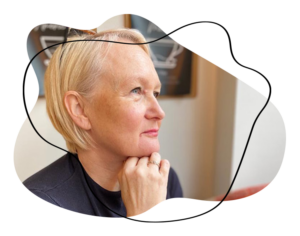
Performance coaches, ADHD coaches, executive coaches, in fact all coaches, spend a lot of time exploring the self-limiting beliefs of our coachees. We look at how they can change their perspective and change their beliefs to promote success. But how many of us do it for ourselves?
Recently during a birthday text exchange with someone I have known for twenty plus years, I expressed concern that my new business venture will be a disaster and that I am completely out of my depth. Her reply was this - ‘Everything you do is successful Sezza. I can’t wait to see it grow.’ I must point out that this message is from my daughter’s best friend who she met in year 1 (hence the silly nickname Sezza). I read that message, smiled, and thought no more about it… until today.
I officially launched www.possibilitiesandperspectives.co.uk on 19th September and I am already frustrated that, despite lots of interest, I do not have a diary overflowing with clients. I feel like I have failed at the first hurdle.
All my life I have had this recurring image of myself as a ‘failure’, but I think that I am beginning to realise that this is my perception of myself and not what other people see.
Big Time Failure Number 1:
I failed school! More specifically I failed a lot of exams and was constantly in trouble at secondary school.
At primary school I was keen, interested and loved to learn – nothing was too much of a challenge. During my secondary education things took a turn for the worse. The harder the learning was the less willing I was to have a go – I did not know how to fail and learn from it. I could not focus, I was easily distracted and became more and more disruptive in class. My maths teacher made me sit in her cupboard during lessons so I could not be a distraction for everyone else. I quickly adopted the persona of the class clown and my peers realised that if they dared me to do something then I would always accept the challenge. Hence, lighting a cigarette over a Bunsen burner and setting my hair alight!
When I was 11, I remember a teacher telling my parents I was Oxbridge material, yet by sixth form my history teacher wrote on my report that he couldn’t say anything about me as I was yet to turn up to any of his lessons.
So, there you go, clear evidence of my failings!
I am now 53 years old, and I have a degree, a teaching postgraduate certificate, the NPQH (head teacher certification), diplomas in Psychology and Performance Coaching with Neurolinguistic Programming. As well as many other certificates for training over the 25 years that I have successfully worked in education.
Does this not make me a success?
Big Time Failure Number 2:
I fail at important relationships. More specifically I broke up with the father of my two daughters.
This ‘failure’ haunted me for many years – I felt guilty that I had spoiled the chances of the girls growing up in a home where both ‘loving’ parents lived and had an equal role in parenting. After all, as it was publicly known at the time, it was me who left after 13 years together. Their reality of course was very different, this was an extremely toxic relationship with an older man who controlled every part of my life – the first control was getting me to leave university after just a term. I had the girls when I was 23 and 26. I did not know how to be a parent. During this time, my parents insisted that I study, and I had completed an Open University degree by the time my second daughter started school. Whilst I was studying, I worked in several schools in a support role. My first job was a mid-day supervisor. Any money I earnt paid for childcare, and I had nothing left after that was paid. In 2000, I became a teacher after a hard PGCE year and I left that relationship shortly after, with a car full of children, kittens and clothes!
In 2003 I began a new relationship, which is now in its 20th year, and he has been everything the girls and I needed and deserved.
So, does this make me successful at relationships?
Big Time Failure Number 3:
I failed at headship. More specifically I have given up headship due to my health.
Several months ago, I wrote my blog – How Headship Broke My Heart and it was published on www.those-that-can.com by Dr Emma Kell.
In a nutshell, I suffered a string of cardiac events which left me very unwell for a long time. After I had accepted that a return to headship was not really a sensible option, my mental health took a nosedive too. I had lost my purpose and really didn’t know who I was anymore. After 12 years of headship and 25 years in total in education, I could no longer do the job as I could not cope with the stress and pressure and my body and mind had failed me.
I now have a diagnosis of Microvascular Cardiac Disease; this is not a very widely known syndrome as it is a cardiac disease that really only affects women and is linked to stress and the hormonal changes in perimenopause (ladies look it up). I have spent the last few months training to be a performance coach with neurolinguistic programming and have launched my own small business. I have created, marketed and networked hard over the past few months. I have had a business launch and have started up a support group for women with ADHD on the Isle of Wight where I live. The business is ready to take off and I love the freedom I have now. For the first time in my life I do have a worklife balance. The passion I have for supporting others has been reignited and I feel as though professionally I have reinvented myself. Whether the business succeeds or not, I have realised, has a lot to do with my self-belief and how I can sell the services that I offer.
So, am I a failure?
Absolutely not! I am resilient, strong and adaptable. I have had (like all of us) a life of highs and lows – but when I am knocked down I will at some point get up and be even more brilliant!
We must stop limiting ourselves with our perception of our failures and change our perspective on ourselves!
This blog was originally published and is available from those-that-can.com.
Business Launch
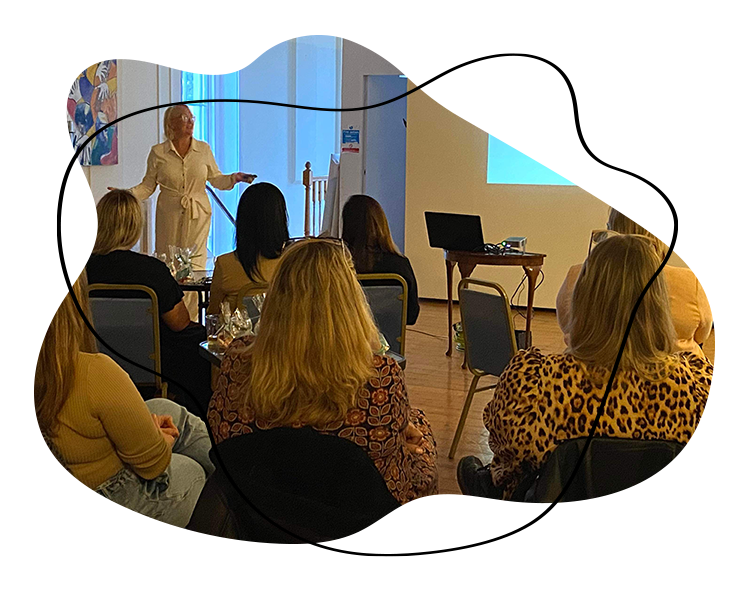
Tuesday 19th September saw the official launch of Possibilities and Perspectives at the Depozitory in Ryde. Thank you to Jenna and Dawn for their amazing hosting skills. The idea of the evening was to spread the word of my new venture and talk a bit about my journey and what is next for me. There was a great turn out on a horrible windy and wet evening - thank you lovely people.
Feedback from attendees:
It is always so stirring when people stand up and share their very personal stories - you did this with great style and storytelling. It was a true honour to listen.
Life Coach
Honestly, it is so brilliant that you are taking this action and creating this service that is going to empower and change so many lives.
Specialist Teacher
Your story and strength is so inspiring.
Teacher
I am in awe of all your achievements, both personally and professionally. You are just the best role model.
Consultant Nurse - Child and Adult Mental Health
You rocked it. Loved the story and your why. Here’s to a fabulous successful future for you and P&P.
Chief People Officer
Get in touch to find out more.
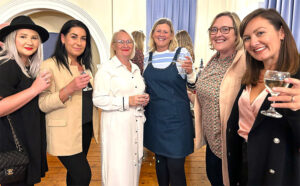
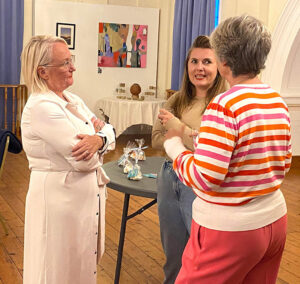

ADHD – A Woman's Story
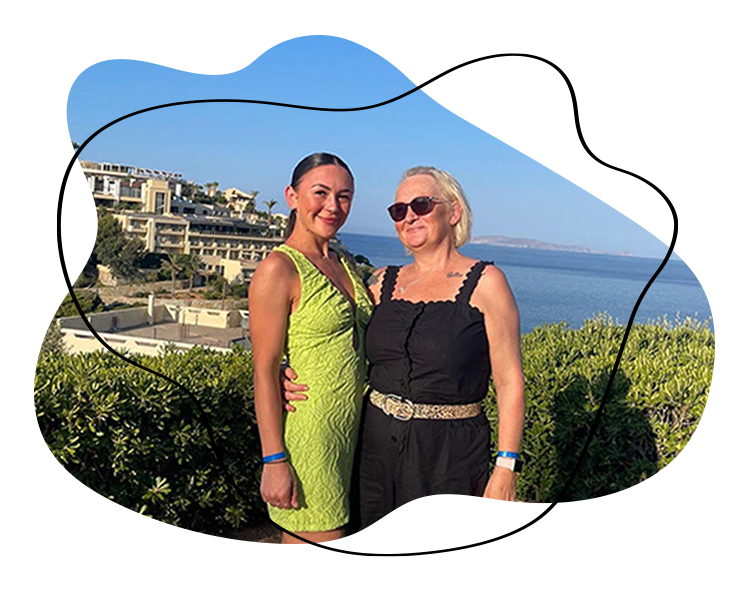
The day that Holly got her ADHD diagnosis was bittersweet to say the least. She was 28 years old and we were in the Psychiatrist's office together after an intensive assessment process that went from her early years right up to the present day. We had arrived at the place together after Holly had admitted being really struggling (not for the first time) with life in general and had returned to significant self-harming. This diagnosis has changed our outlook on life but would have been far more useful 15 years ago. I doubt very much that she would have been diagnosed before her teenage years. As her mother I felt both relief that we had finally got there and guilt that it had taken so long. As an educator all I could think was ‘how the F**K did I not put two and two together and make four’. And therein lies the problem for women with late diagnosis ADHD; all the health and education professionals involved with you over the years (and sometimes your own family) put two and two together and make five, six or even seven – but never four!
When I began teaching in 2000, ADHD was something that only boys were diagnosed with, and often it was thought that chaotic/negative parenting played a central role (nonsense of course!) These boys were often impulsive, loud and caused daily disruption in your class, and this is still very much how it presents in boys today. Thank god we are better educated now but I wonder how many girls in my classes were struggling with ADHD, but because it presents so differently in females are now only getting the support they need?
In Holly’s early life there were factors that would not have led you to an ADHD diagnosis initially; she had a traumatic birth which led to her being in NICU and the first nine years of her life was spent in a home where domestic violence and alcohol and drug abuse was the norm – something we have all taken a long time to process and accept.
As a baby she never slept for longer than two hours, night or day! I did not know whether I was coming or going for the first two years of her life. She slept with me every night and only managed one night in her cot, and she screamed herself to sleep whilst I cried (the health visitor said I had to be tough!) Incidentally, when her sister was born three years later, she slept through the night at ten days old. I had to keep checking that she was breathing!
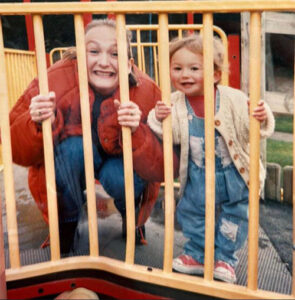
Holly was a curious child, her speech was great and she read at an early age – her love of books came from her maternal Grandma. She loved to learn and could retain so many facts and figures about things that she was interested in – if she wasn’t interested, forget it! She liked to please at school and was compliant and followed the rules. At home, she was a live wire, she wanted to do everything. At one stage in her school life we were running her to events every night of the week and at weekends. She played football, cricket, netball and she was part of an athletics club and ran long distances competitively. She rode horses, and surfed and swam – in fact she swam the Solent! She still runs most days and has competed in marathons and triathlons. Once she began High School at 13, she joined the gym and went twice a day most days. She was also very academic and took her studies very seriously. It was also obvious that she struggled with relationships with others and her own view of herself. We really struggled to understand how her mind worked – not long ago she told me that her head was ‘so loud.’
During her teenage years Holly struggled with her mental health – she lost a lot of weight and was not eating anywhere near enough to fuel the daily exercise she was undertaking. She was diagnosed with Anorexia and referred to CAMHS. Over the years there have been many suggestions and diagnoses from various professionals – Anxiety, Depression, Bi-Polar Disorder and Anorexia have all been attached to Holly and all with different treatments including medication. None of these ever seemed to make things any more understandable or manageable for her or the rest of the family. Then it was time for university, and this is when she really began to unravel. Managing life was too difficult for her and she was completely overwhelmed all the time and like so many young women in her position she self-medicated with whatever helped her at the time. Believe it or not, despite how hard it was and still is, she has a nursing degree and is now training to be a doctor. Her resilience astounds me.
Holly is one of many young women who have been wrongly diagnosed for years. It is a sound argument that it is because we knew less about ADHD in women 10 or 15 years ago – but we know now and have to do better! For a start, waiting lists are so long on the NHS you may as well give up before you even start – we were lucky enough to have family support us to go through the assessment privately. However, this in itself comes with the fact that some people think that if you pay for a diagnosis then of course you will get it! (I don’t think any of us, including Holly, wanted her to have ADHD). Educators need training to recognise the signs of ADHD in girls so they won’t have to struggle for so long. Research now shows that if young people are safely medicated earlier on in life, they will be less likely to use drugs/alcohol/sex/crime to self-medicate – surely this is what we want for our young people?
Holly does take medication to help the symptoms of her ADHD – it took a while to get the dosage right and for her to accept the side-effects, which are not pleasant. She can choose when she can have a break from them and knows that they do not mix with alcohol – she hasn’t drunk for months. We have both been on a journey and have read lots of books together and researched how ADHD is different between males and females. As a mum, I hope that I understand her better and try very hard not to let things that would have annoyed me before worry me – like the inability to see any of the mess she creates around herself or the difficulties she has when plans change. I sincerely hope that she understands herself better and accepts that there are some things in life that she will always find hard. The one thing that the Psychiatrist said that has stuck with me, is that he was utterly amazed that Holly has succeeded with so many things in her life considering the significant impact ADHD has on people. (I do intend to follow up this blog with others about ADHD and how it presents in females, but if I continue writing now it will become the first chapter of a book and not a blog!)
I have written this with Holly’s blessing and I am hoping that she is also going to write a blog telling us all what it is like for her.
I am incredibly proud of how she has survived this journey and is now beginning to thrive – it has been a hard road for her and everyone that loves her and I am grateful to you all for showing her patience and understanding.
Incidentally, ADHD is thought to be genetic and the more I have learned about it and myself the more I believe that I too have ADHD. I have been referred for an assessment by my wonderful therapist but on the NHS – I am in no hurry as I have managed it for this long. People often comment on how alike Holly and I are in many ways, so ADHD will become something else that we share.
This blog was originally published and is available from those-that-can.com.
Possibilities and Perspectives
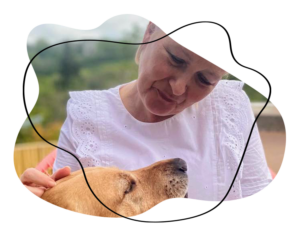
My little blog, How Headship Broke My Heart, was viewed over 400,000 times! It connected me with all sorts of wonderful people, and I even appeared on the local news! So, for anyone who is interested, here is an update from my current position in a brave new world.
As I write this, I am sitting on a blanket outside a beach hut close to where I live on the Isle of Wight. It is a Tuesday, term time and 2 o’clock. I am calm and I am breathing. It feels alien and amazing all at once. I am not in front of a screen (I am handwriting in a notebook), and my phone is on silent. I am calm and I am breathing. I do not have an emotionally dysregulated child (or two) with me, building Lego to calm down (neither do I feel the need to explain this to a member of staff who perceives this to be a reward!). I am calm and I am breathing. I am guessing that my blood pressure is fine, and I have a distinct and welcome lack of pains in my chest, head or arms and no sign of overwhelming feelings of anxiety. I am calm and I am breathing.
I am also very lucky.
It has been six months since the cardiac events that hospitalised me and scared myself and my family to distraction. Six months since I admitted to myself the impact that headship was having on my physical and mental health. I am still taking extensive amounts of medication daily and cannot do everything as ‘full on’ as I used to. I know I cannot go back to headship and stay well, and I am still waiting on a decision about ill health retirement (patience has never been a virtue of mine). On reflection though, I am not just lucky, I am lucky to be alive.
During the past few months, I have started to heal, and I have realised much about our education system and about myself. I maintain that the system is broken and serves neither pupils or school staff. It has slowly dawned on me that I am just one person, and that I cannot and should not do the job of five. And I finally recognise that I deserve a ‘good life’, but that doesn’t mean I can’t care and support others along the way.
Don’t get me wrong – I miss the school community deeply. It is a wonderful concoction of families and staff that I have invested my time and emotions in. I miss contact with the children, cuddles, jokes, comments about my outfits and, of course, the joy that good education brings them. I have learnt that I thrive on human contact and interactions and on some days I feel the loss of them.
However, there are many, many things that I do not miss. In pole position is jumping through hoops for an invisible inspectorate. Followed swiftly by the absolute ridiculousness of testing children for government league tables and allowing them to feel the pressure of these nonsense exams! After considerable rumination, I think that my third position would go to the daily difficult conversations and conflict that now makes up a large part of the headship role. I could go on…
For weeks after I was signed off, I didn’t know who I was – I had lost my sense of purpose. But over time I started to return to myself and remember who I was before I broke. I naturally have days when I am anxious about my heart health. I suffer with angina quite regularly and although I know how to treat it and what to avoid, sometimes I worry that the pain will turn into something more sinister. I have a wonderful therapist, who quickly identified that I have trouble slowing down and want everything done immediately (there has even been some discussion about ADHD – who would have known?). Her services are provided by the wonderful NHS, free of charge! And amazingly, my internal monologue telling me what a failure I am only pipes up occasionally and is no longer on a permanent loop!
If you are still reading, well done – stay with me as this is the important part! During the healing process I have been blessed with two life affirming things – possibility and perspective. I have possibilities stretching out in front of me. I am training to be a performance coach (with NLP), and this is teaching me valuable lessons about life and how we approach it. I am excited/terrified about supporting others to gain clarity and reach their goals. My mind is working overtime, ideas jumping about. Could I write a book? Train others to coach or teach? Run a cake shop that sells books? Become an influencer? A stand-up comedian? A pub landlord? (Okay I agree not all of them are sensible ideas!) But it is time to set some new goals, use my skills in a different but not less important way and how blooming exciting is that?
As for perspective, it is a game changer! All of the terribly important things that kept me awake at night, that I wanted to do better – they are no longer important to me. I did my best and that was enough. When you are in the midst of a busy life, in stressful situations, your perspective can be lost, normally shortly after your sense of humour!
Perspective has made me look to the future. When you suffer trauma of any kind you need time to adjust (recognised by therapists now as Adjustment Disorder). Knowing that you have risked your health for your job brings both clarity and perspective.
It is an obvious thing to say, but it is something we forget. You have one life and how you shape it is in your hands…
This blog was originally published and is available from those-that-can.com.
How Headship Broke My Heart

Preface by Emma Kell
Presenting to large groups of people is (and arguably, should always be) nausea-inducingly terrifying. My secret trick is to start by focusing in on a handful of key people: the one who exudes kindness and nods from the moment you introduce yourself, the one with the stubbornly straight face who you aim to win around, and the shrewd one who exudes the kind of wisdom that says, ‘I won’t take any crap, but I’m listening…’. Two years ago, in the Isle of Wight, Sarah was the latter. She’s the kind of person who exudes moral purpose and high standards – who inspires you to be the best version of yourself you can be. She’s the kind of person you want to go to the pub with and put the world to rights. I’ve since had the privilege of getting to know Sarah. She’s the kind of leader who makes me want to relocate so I can work with her; the kind of leader who eschews fads and polarities and embraces what works for her school and her community. She’s fiercely loyal to her team, wickedly funny, entirely lacking in ego and unapologetically authentic in her words and deeds.
During the months when I first got to know her, the ‘scabby pigeon’ in the corner of the ceiling (you can’t take your eyes off it because it might sh*t on you at any moment) was Ofsted. Sarah was frequently gung-ho about them – it’s our school and we know our community best and we know we’re doing a great job – but as she watched colleagues beaten down by inspections and the chant of ‘not good enough’ became louder and louder amongst fellow school leader she cared so much about, Sarah’s anxiety levels rose.
Ofsted came and went, as they eventually do, and it actually wasn’t as bad as she might have imagined.
Then, less than a month later, I received this text from Sarah
So looks like I am poorly after all. Have been in hospital since yesterday at 6pm and they want to transfer me to Queen Alexander hospital in Portsmouth as I have had a heart attack!!! I'll have to bloody rest now won't I? xxx
Sarah’s no longer in headship. The decision was taken out of her hands. Here’s her story.
Back in the summer of 2022, I wrote a blog for Emma Kell all about the ‘Joy of Headship’. I meant every word and I was looking forward to my 13th year of headship. It is now April 2023 and I have not been able to work since 1st December, plus I have handed in my notice for the end of the academic year. I am only 52! I often sit and wonder how I got here and if I could have done things differently. I am yet to come up with a definitive answer.
Let me talk you through the events and see if we can draw some conclusions.
Firstly, I need to make it clear that I have always loved my stressful but rewarding job, but something shifted in me this year and I was unable to switch off. Is it possible to care too much? The school is a good school; our team has worked bloody hard to ensure this and we were happy to show it off. However, stories of awful inspections were filtering down to me - through social media and then from fellow heads who had very recently been visited. I began to worry about our outcome; we were due any day and those worries became huge anxieties that I carried with me at all times. I have a history of depression and high blood pressure and I sought medical support with them both through October - but I was ‘fine!’
Ofsted called and visited us on 15th and 16th November (the same days as Caversham Primary, Ruth Perry’s school, which is not lost on me!) It was as I had been warned, a very different experience to the previous two I had led. The inspector had her views on the school before entering the building and there was a distinct lack of professional discussion. We retained our ‘good’, with a warning that they will be back in two years to check the things that weren’t ‘good enough.’ The outcome is not important though, it is the stress of the build up and the actual process that needs to be examined urgently.
A week prior to the inspection, my normally high blood pressure was even higher and I was prescribed extra medication to help bring it down. During the safeguarding ‘grilling’, my deputy and I watched my feet and ankles swell, reminiscent of Augustus Gloop! Another emergency GP phone call was made. By the end of the gruelling second day I was broken, I had barely slept and had been surviving on adrenalin only for 72 hours. The process was a constant battle, with my staff and I trying to prove how we knew the school was good and having the resilience to keep going. It was really tough - much tougher than it needed to be.
But hey Ofsted was done! I naively thought that once they had left the building I would feel joyous relief and be able to carry on where we left off. This time it was different. There were things that had been said, comments made in those two days that ate away at me. I had concerns about my brilliant staff and how they had coped; I felt like I hadn’t protected them enough. School life carried on, but it seemed to be even more stressful. We were dealing with some really challenging situations as all schools do and not enough time or money for staff to fulfil their roles effectively. For the first time in my role as headteacher, I felt that my staff were unhappy and wanted me to have all the answers - and I didn’t.
By the end of November, I was really struggling both mentally and physically. I decided to go on a school visit with my year 1 class and their wonderful, young teacher - I needed time out of my office and with some children (I barely remembered what they looked like). On the coach on the way home, I felt some mild chest pain and pins and needles in my left arm - I put it down to the fact that a little girl had fallen asleep on my arm!
The following day I had a particularly difficult meeting; I am normally really good at staying calm and seeing everyone's perspective - this meeting left me angry and frustrated (one of those where you sit in your office afterwards and cry angry tears!)
I called my GP the next day as I was feeling increasingly unwell and was told to go to A&E for an ECG, to be on the safe side. I really wasn’t sure where I would fit it into my day but I did manage to pop up at lunchtime, really not expecting what happened next. What followed was a period of morphine foggy conversations with different medical experts. I was admitted, discharged, admitted again and then told by a Cardiologist that I had experienced a string of cardiac events and that I was leading up to a huge heart attack - I know the clues were there but I was too busy and indispensable to listen to them. Did I mention that I am only 52?
I was then blue-lighted to the hovercraft, where I was stowed in the luggage bay with my own emergency team and taken to QA hospital in Portsmouth, it would have been exciting if I wasn’t so terrified! I then had a few days of bed rest and extensive investigations. I was finally discharged with a diagnosis of Acute Coronary Syndrome and more medication than my 81-year-old father has to take daily.
I am not recovered, physically or mentally, but I am getting there. I am attending Cardiac Rehabilitation (I am the youngest there), accessing mental health services and in a few days time will be travelling to London for a specialist cardiac MRI to see the scale of any damage done to my heart.
Do you know, I think I have read the Ofsted report a handful of times; it is so insignificant to me now. We really are replaceable at work - my school has continued without my presence.
My amazing GP is helping me to claim for ill health retirement from Teachers Pensions, this has been almost as stressful as the build up to an inspection and nowhere near sorted. It is a difficult process and you need to have your wits about you. My blood pressure is now deemed to be treatment resistant hypertension (I take four different medications all with different side effects for this alone) and I have a diagnosis of acute coronary syndrome, as well as depression and anxiety. However, if an Occupational Health expert decides that I will be fit for work again before pensionable age, I will not qualify for even the first tier of ill health retirement. The first report they wrote was so factually incorrect and badly written that I had to make a complaint to get an apology and a rewritten report. The doctor who saw me over Zoom for twenty minutes described in the report that I had a physical reaction to the ‘perceived stress’ of my job. In a time when colleague heads have taken their own lives I would like to think that other professionals would acknowledge our stress as very real. In our interview I was asked; if the governors could remove Ofsted inspections, a lack of budget, challenging families and leading a team of staff, did I think I would be able to do my job? Oh the irony!
So what do you think? Can we make any connections between my health and my role as Headteacher? I don’t think it needs to be spelt out, does it?
Schools need and value a system of accountability, but the current system is toxic. Education in this country is broken, we are undervalued and our concerns are dismissed - remember we are the sector that stayed at home during the pandemic. There will be no experienced headteachers left if this continues. Sadly, despite all the amazing things I have achieved in my career, I have been left with an overwhelming feeling that I have failed. No job should put your body under so much stress that it drastically affects, not just your quality, but the length of your life.
Change must happen!
This blog was originally published and is available from those-that-can.com.

